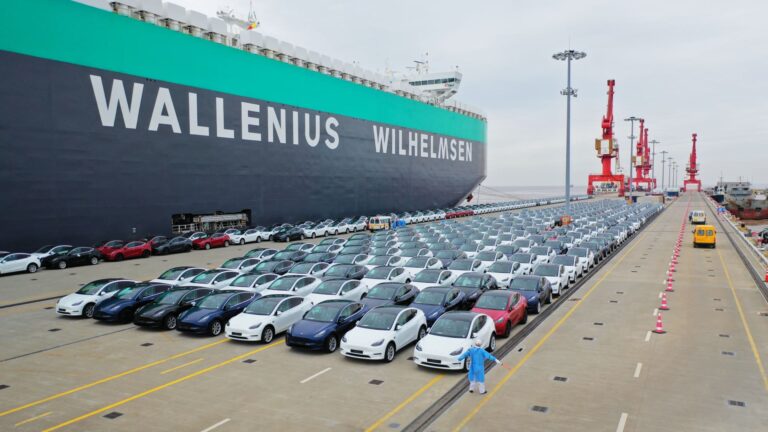The U.S. move to impose higher tariffs on Chinese-made electric vehicles will impact the U.S. battery supply chain and create investment opportunities, Bernstein said. The White House said higher tariffs on Chinese EVs and other products from major Asian companies are necessary to protect U.S. industry from unfair competition. Bernstein said in a May 13 memo that these tariffs will benefit the U.S. battery supply chain, with demand expected to increase at a compound annual growth rate of 25% to 30%. “We believe that the introduction of cheaper and better EV models will drive adoption, leading to a turning point in the coming years,” Bernstein said. In addition, Inflation Control Act (IRA) subsidies to bring the battery supply chain back to the United States are “having the desired effect,” he added. Bernstein noted that Korean companies currently “dominate” the U.S. battery supply chain. “From our perspective, Korean companies, which are among the biggest beneficiaries, are increasing their investments in North America.” He named companies such as LG Energy Solutions and Samsung SDI, which control more than 65% of U.S. battery manufacturing capacity. “South Korean companies have been the biggest beneficiaries of the IRA so far and are shifting toward EVs as the U.S. seeks to decouple from China,” Bernstein analysts said. LG Energy Solutions has the added advantage of being the most likely to benefit from growth and IRAs, they added. But Bernstein said he currently prefers Samsung SDI over LG Energy Solutions because it offers “growth at a reasonable price.” Bernstein said LG Chem is the “most notable Korean company” in the cathode market and expects “the valuation discount will end” with LG Energy Solutions as the battery materials business grows. In fact, cathodes are the “most diversified” in terms of suppliers within the U.S. market, split among major companies from South Korea as well as Europe. European companies include Umicore and Basf. Bernstein gave Samsung SDI and LG Chem an Outperform rating, and LG Energy Solutions a Market Perform rating. Bernstein’s market perform rating is equivalent to a hold rating, and an outperform rating is a buy, according to the company. “Some of these companies are trading at high valuation multiples, and the success of these companies will depend on how quickly EV adoption occurs and how large the moats IRAs can provide. Bernstein said. Other companies with a share of U.S. battery manufacturing capacity include Panasonic, Tesla, Ford and Freya, the company said. In which areas will U.S. domestic companies have more stake? Bernstein said domestic companies are focusing on next-generation battery technologies, such as solid-state battery technology, which will bring “significant cost savings.” may lead to. Bernstein said major U.S. companies developing solid-state battery technology include QuantumScape, Solid Power and SolidEnergy Systems. —CNBC’s Michael Bloom contributed to this report.

